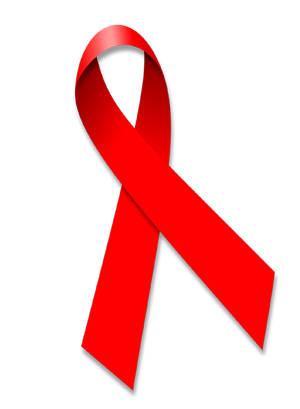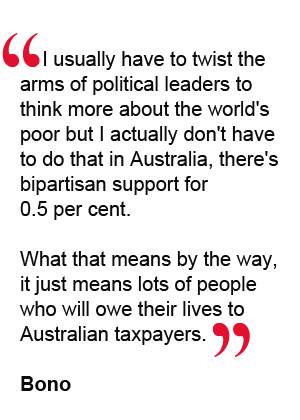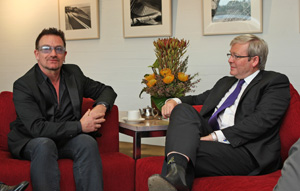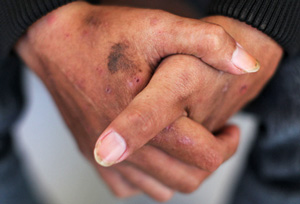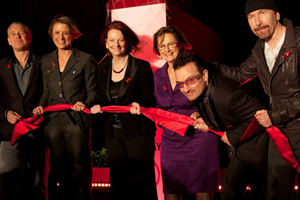Reducing HIV transmission by helping men who have sex with men in Indonesia
On World AIDS Day (1 December 2010), Australia reaffirms its commitment to tackling HIV in the Asia Pacific region. If we are to help our neighbouring countries with the epidemic, an increase in effective action is needed to prevent the spread of HIV amongst those most at risk, such as men who have sex with men.
Across Asia, unprotected sex between men is one of the biggest drivers of HIV transmission and research shows the epidemic is growing rapidly in this group. If we don't take effective steps to reduce the rate of infection amongst men who have sex with men, it is estimated that by 2020, HIV amongst this group will account for 46 per cent of all new HIV infections in Asia. This is up from just 13 per cent in 2008.
Yet the new UNAIDS Report on the Global AIDS Epidemic 2010 found 79 countries worldwide criminalise same-sex relations and six apply the death penalty. In the Asia-Pacific region, 90 per cent of countries have laws which obstruct the rights of people living with HIV.
This has serious consequences for HIV-positive men who have sex with men. In the Asia Pacific region more than 90 per cent of these men do not have access to HIV prevention and care.
In Indonesia, for example, HIV prevention programs, including those that provide outreach services, reach only about four per cent of the estimated one million men who have sex with men.
Respect for human rights is fundamental to working with men who have sex with men. Stigma and discrimination still looms large for them. This affects their access to information, testing and counselling for sexually-transmitted infections and HIV. It also discourages men from buying and using condoms because of shame and embarrassment. Efforts to reach this group in Indonesia are also limited by funding, lack of trained staff, geography and time.
At the International Congress on AIDS in Asia and the Pacific in Bali in August 2009, Indonesia's President Susilo Bambang Yudhoyono endorsed a declaration calling for HIV prevention in most at-risk groups, including men who have sex with men. This moving speech was a turning point for people living with HIV and a historic step for Indonesia. It was the first time an Indonesian leader publicly recognised the issue of HIV prevention among men who have sex with men. Australia was instrumental in this outcome, with Australia's HIV Ambassador co-drafting the declaration with the Director of Indonesia's National AIDS Commission, Dr Nafsiah Mboi.
Australia is working closely with Indonesia to tackle these issues. On World AIDS Day last year, Australia committed $1.5 million to Indonesia to carry out a focused national plan for men who have sex with men. This plan includes:
- improving HIV prevention among men who have sex with men
- providing accessible and quality sexual health services for these men, and
- linking improved HIV care with prevention programs for HIV positive men who have sex with men.
Australia has been supporting Indonesia's response to HIV for more than 12 years. Under the Australia Indonesia Partnership for HIV 2008-2015, we have committed up to $100 million to combat the spread of HIV in Indonesia and improve the quality of life for those living with the virus. This commitment aims to help Indonesia's efforts to achieve the Millennium Development Goal to halt and begin to reverse the spread of HIV by 2015.
More information
Australia's international HIV strategy
External websites:
- Prime Minister's World Aids Day speech
- Minister Rudd: No time to rest in battle against AIDS–Opinion editorial
-
World AIDS Day
-
ICAAP 9: Opening speech of Indonesia's President Susilo Bambang Yudhoyono
-
ICAAP 9: Declaration on the Response to HIV and AIDS in Asia and the Pacific
- UNAIDS Report on the Global AIDS Epidemic 2010
-
UN Secretary-General: Message for World AIDS Day 2010

